



to the
Troubadours& The Beloved:
The Religion of
Love / Amor
page One


Troubadours & The Beloved: Fin' amor ("Courtly Love"); the Troubadour devotees of "The Religion of Love/Amor" (or the Fedeli d'Amore) in Andalusia, Occitania (South of France), and Italy, the "Twelfth-century Renaissance," the "Rebirth of Eros" in Western culture, and the Beloved as "Rose-Woman."
"The subject tonight is love, and for tomorrow night as well. As a matter of fact, I know of no better topic for us to discuss until we die." -Hafiz



Fin 'amor






Troubadours and Trobairitz





.jpg)
"Chant d'Amour" (The Love Song)

.jpg)
"Music" (Burne-Jones)


.jpg)

.jpg)

"A Love Song of Love" (Theaker)




The joy of woman is the Death of her most best beloved
Who dies for Love of her
In torments of fierce jealousy & pangs of adoration.
The Lovers night bears on my song
And the nine Spheres rejoice beneath my powerful controll
They sing unceasing to the notes of my immortal hand
The solemn silent moon
Reverberates the living harmony upon my limbs
The birds & beasts rejoice & play
And every one seeks for his mate to prove his inmost joy
Furious & terrible they sport & rend the nether deeps
The deep lifts up his rugged head
And lost in infinite hum[m]ing wings vanishes with a cry
The fading cry is ever dying
The living voice is ever living in its inmost joy
-William Blake, Vala or the Four Zoas: Night of the Second



.
.
.
.


.
The Troubadours and Trobaritizes,
Courtly Love (Cortezia), and Chivalry
"O tender yearning, sweet hoping!
The golden time of first love!
The eye sees the open heaven,
The heart is intoxicated with bliss;
O that the beautiful time of young love
Could remain green forever."
~ Friedrich Schiller, “The Song of the Bell”
"Ultimately, it is the desire, not the desired, that we love."
~ Friedrich Nietzsche



The twelfth-century troubadours (Southern France: Occitania) and trobaritzes (women troubadours), trouveres (Northern France), and minnesingers (Germany) composed a variety of different song styles about love, politics, life, and death (some of them were by turn heroic, ironic, satirical, and bawdy), which they carried from town to town and from court to court with their jongleurs, who accompanied them on a variety of instruments, mostly stringed. About half the poems/songs the troubadours composed were love songs written in praise of their idealized "Lady" (domna or midons). This kind of love was called "fin'amor" (the Provençal term for "refined love" or "pure love"), but generally known (since the 19th century) as "amour courtois" or "courtly love." Fin' amor(s) was basically an adulterous love. Yet, fin'amor was in itself refining and ennobling to the lover, the means to the fullest expression of what was potentially beautiful and elevated in human nature. This developed into a the "code of chivalry." The decades between 1150 and 1250 are known as the classic age of the troubadours . The pan-European troubadour culture (France, Germany, Italy, and Spain) is commonly known as the "courtly love tradition” of the "Twelfth-century Renaissance."












Troubadour Sings of the Legend of Tristan and Iseult

Tristan and Isolde (Leighton)

Troubadour in Court of Eleanor of Aquitaine
Troubadours in Court
of Court of Alfonso X



Troubadours in Court
of Court of Alfonso X

Trobairitz in Court
of Court of Alfonso X
Trobairitz in Court
of Court of Alfonso X




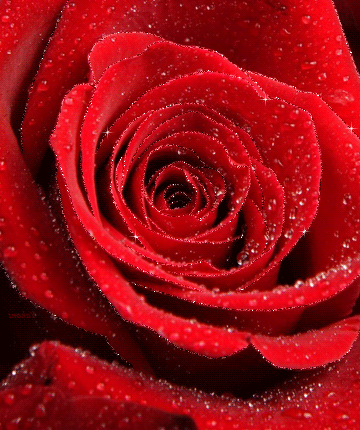
.jpg)




















.jpg)


.jpg)

.jpg)
.jpg)



.png)
_%20(Watteau).jpg)






.
.



The Troubadours, Chivalry,
and The Quest of the Holy Grail
---"Down By Avalon"



.jpg)

"The Accolade"
.jpg)
"Chivalry"
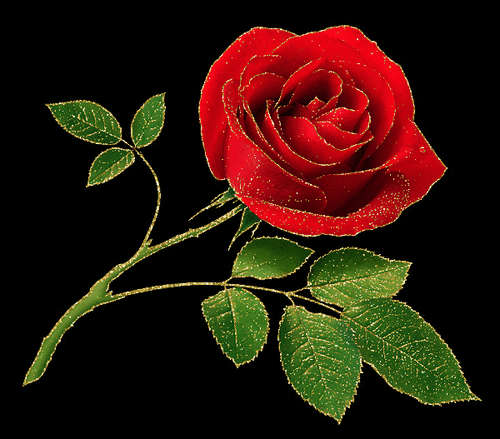
_jpg%20.jpg)

"Rose Thrown as Token"
.
.


Courtly love (cortezia) was a concept of nobility and chivalry expressing love, admiration, and “love's service.” Chivalry, or the “code of chivalry,” was an informal, varying code of conduct developed between 1170 and 1220. It was designed to govern the medieval institution of knighthood. A knight’s and a lady’s behavior were governed by chivalrous social codes. This relationship was based on the premise of the feudal relationship between a knight and his love. The knight serves his courtly “lady” (domna or midons), who was customarily a married woman, with the same obedience and loyalty which he owed to his lord. The lady is in complete control of the adulterous relationship, while the knight owes her obedience and submission. Absolute obedience and unswerving loyalty were critical. Customarily, she seemed remote and haughty, imperious and difficult to please. She expected to be served and wooed, at great length. To incur the displeasure of one’s lady was to be cast into the void, beyond all light, warmth, and possibility of life. However, physical consummation of love was not obligatory. (And the long-standing scholarly debate continues as to whether or not this love was actually consummated.) The importance of courtly love was the prolonged and exalting experience of being “in love.” The knight’s love for his lady influenced him to be a better servant, to be worthy of her love and to win her favor. In its essential nature, courtly love, or fin’ amor(s), was the expression of the knightly worship of a refining ideal embodied in the person of the beloved. Only a truly noble nature could generate and nurture such a love; only a woman of nobility of spirit was a worthy object. Thus, courtly love, although by definition an “illicit love,” was an ennobling force whether the relationship was consummated or not and even whether or not the lady knew about the knight’s love or love him in return.
The courtly love and the ideals of chivalry influenced literature through expression in lyric poetry and romance narratives (either of verse or prose), especially the Arthurian romances of the Grail-quest cycle. (Other chivalric romances influenced included the “Matter of Rome,” the “Matter of France,” “Matter of Britain,” and “Tristan Isolde.”) This medieval romance literature tells stories (which contain supernatural elements; magical figures and enchanted forests and vales) about noble knights embarking on dangerous missions while engaging with alluring women along the way. These stories present the idea of courtly love in a way that demonstrate the knight's devotion to an unapproachable lady, who ennobles and elevates his character through quests in which he must surmount a series of ordeals in order to win her heart. This was known as “the knighthood of love.”
.


_jp.jpg)
.jpg)

.jpg)
.jpg)
.jpg)
.jpg)

.jpg)

.jpg)


.jpg)



.jpg)




.jpg)

.jpg)

.jpg)

.jpg)




"Chivalry Dying of Love for the Goddesses" (Brickdale)
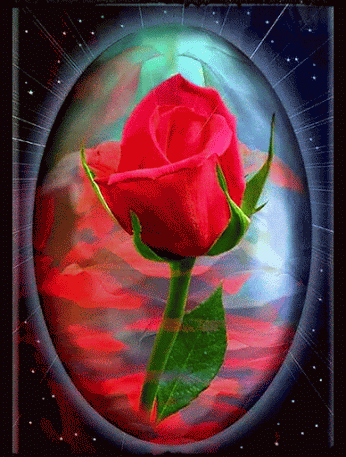

.
With the “code of chivalry,” the rough masculine element of knighthood was greatly diminished, and in its place was put the ideal of the knight as a “gentle man” in service to his “Lady.” (Eleanor of Aquitaine and her daughter Marie de Champagne supposedly held “courts of love” that greatly influenced the courtly love idea of chivalry during the 12th and 13th centuries.) The troubadour ideals of chivalry were popularized in medieval literature, especially in Arthurian romances of the Grail-quest cycle.
.
.jpg)

"Chivalry "(Dicksee)
.jpg)
"The Dedication " (Leighton)
.
Concerning the early influences of the Arthurian romances (written by Chrétien de Troyes, the late-12th-century French poet and trouvère who served at the court of his patroness Marie of France, Countess of Champagne, daughter of Eleanor of Aquitaine), recent scholarship has come up with considerable evidence to support a borrowing from Celtic mythology, such as the Grail cup coming from the archetypal Celtic cauldron and the magical elements in the stories coming from the Celtic Otherworld. As for the Grail tradition itself, there's the legend (recently popularized in books and movies) that the Grail-quest was initiated by Mary Magdalene, who is believed to have brought the Grail chalice to the South of France.
.
The Quest for the Holy Grail
.


Grail Maiden

.jpg)
"The Holy Grail"

.jpg)
Grail Maiden
Grail Maiden
.jpg)
"Saint Grail Legend" (Hendrich)
.jpg)
"The Grail King Titurel" (Stassen)
.jpg)
"King Arthur and the Grail" (Godwin)

_jp.jpg)
"In Search of the Holy Grail" (Burne-Jones)
"Quest for the Holy Grail" (Burne-Jones)

"Vision of the Holy Grail" (Burne-Jones)

"Vision of the Holy Grail" (Burne-Jones)

"The Attainment of Holy Grail by Sir Gallahad and Sir Percival" (Burne-Jones)

"Quest of the Holy Grail - Sir Lancelot and
Sir Bors outfit Galahad" (Abbey)

"Quest and Achievement of the Holy Grail" (Abbey)

"Quest for the Holy Gail - Castle of the Maidens" (Abbey)

"Quest for the Holy Grail - Knights of Round Table set forth" (Abbey)

"Three Angels Bear the Grail"
.jpg)
"The Knight of the Holy Grail" (Waugh)


"Angel of the Grail"

"Sir Galahad and Quest for the Holy Grail" (Hughes)

"Sir Galahad, Bors, Percival Fed with Sanct Grael" (Rossetti)
.jpg)

"Angel rowed Sir Galahad across dern mere" (Joesph)
"Sir Galahad" (Paton)
.jpg)
"Sir Galahad and His Angel" (Paton)
.jpg)
"Galahad Kneeled" (Frith)

"Galahad Sees Holy Grail"
_.jpg)
"The Temptation of Sir Percival" (Hacker)

"Percival and the Holy Grail"


"The Earthly Paradise / Sir Lancelot
at Chapel of Holy Grail "(Burne-Jones)
Sir Lancelot at Chapel of the Grail

"The Apparition of the Grail"

"Parsifal and Knights of Holy Grail" (Marcius-Simons)
.jpg)
"Quest for the Holy Grail" (Burne-Jones)
.
Arthur's Court at Camelot
.

.jpg)
"Arthur and Excalibar" (Wyeth)

.jpg)
"Romance of King Arthur" (Flint)

_.jpg)
Knights of the Round Table

Knights of the Round Table
"Knights of the Round Table" (Burne-Jones)


"Tournament of Knights of the Round Table"
"Tournament at Camelot"
.jpg)
"Sir Galahad" (Watts)
.jpg)
"Sir Gawain" Burne-Jones)

jpg.jpg)
"Parsifal" (Delville) with Avalon (Glastonbury Tor) in the distance
.jpg)


"Queen Guinevre's Maying" (Collier)
Guinevre and Lancelot
"Sir Lancelot and Queen Guinevere" (Archer)

"The First Kiss between Lancelot and Guinevere"
.jpg)

Lancelot and Guinevere
.jpg)
"Lancelot and Guinevere" (Draper)

Tennyson's Lancelot and Guinevere
.jpg)
"Guinevere" (Guay)



"Lancelot" (Chretien de Troyes)
"The Ladies of Camelot" (Burne-Jones)
"Departure of the Knights" (Burne-Jones)

King Arthur, Merlin, Lady of Lake

.jpg)
"Merlin and Nimue" (Burne-Jones)
"The Beguiling of Merlin" (Burne-Jones)
.jpg)
.jpg)
"King Arthur's Merlin" (Roberts)

"Merlin and Fairy Queen" (Duncan)
.jpg)
"Last Sleep of Arthur" (Burne-Jones)
%202.jpg)
Morte d'Arthur (Tennyson)

Grail and Alchemical Marriage
.
". . .the month of May was come, when every lusty heart beginneth to blossom, and to bring forth fruit; for like as herbs and trees bring forth fruit and flourish in May, in likewise every lusty heart that is in any manner a lover, springeth and flourisheth in lusty deeds. For it giveth unto all lovers courage, that lusty month of May."
–Sir Thomas Malory, Le Morte d'Arthur
.

Legend of King Arthur tapestry


Camelot Castle
.jpg)
"Dreams of Camelot"


Avalon Isle (Cavalon/Camalot)


Avalon Isle and Glastonbury Tor


Avalon and the Enchanted Vale


Avalon and the Enchanted Vale
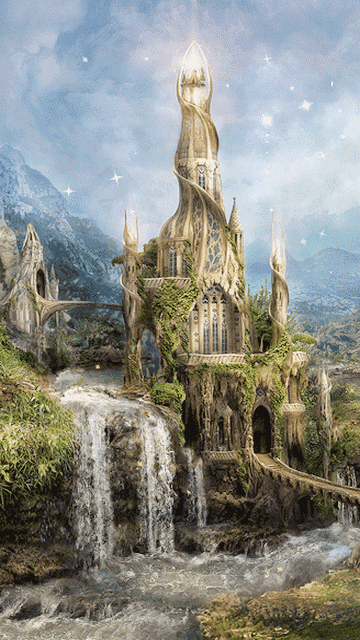

Oh the Holy Grail
Baby behind the sun
Oh the Holy Grail
Down by Avalon
Well I came upon
The enchanted veil
Down by the viaducts of my dreams
Down by Camelot, hangs the tale
In the ancient vale.
(Van Morrison, 'Avalon of the Heart')

.

.
.
The Troubadours' Courtly Love:
Fin'Amor

.jpg)
"The Temple of Love"
.jpg)
"Love" (Eros/Cupid)


.jpg)
"Cupid's Hunting Fields"
.jpg)
.jpg)
"Cupid & Psyche"


"Cupid & Psyche"



.
The troubadour phenomenon in Occitania was the
rebirth of eros in the "Twelfth-century Renaissance."
.



"Romance" (Brickdale)
.jpg)
.jpg)
"Love's Passing"
.jpg)
.jpg)
"Love"
"The True Love"
.jpg)
"A Masque of Love" (Duncan)


.jpg)
"Love and Time" (Rovelli)

Troubadour Garden of Love tapestry
"Love and His Counterfeits"

The Troubadour "Book Love"

The Troubadour "Book Love"

Tristan & Isolde :
.jpg)


.jpg)
.jpg)
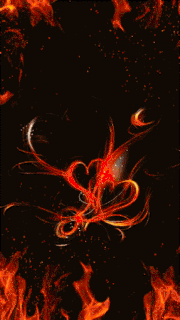
.jpg)

.png)
"Romeo and Juliet" (Harbour)
.jpg)
.jpg)
"The Lovers" (Rossetti)


"The Meeting on the Turret Stairs" (Burton)
.jpg)


.jpg)
"Young Lovers" (Archibalt)

Arab-Persian lovers Layla & Majnun

Amor Reunites Sacred & Profane Love



.jpg)
"Sacred and Profane Love" (Titian)
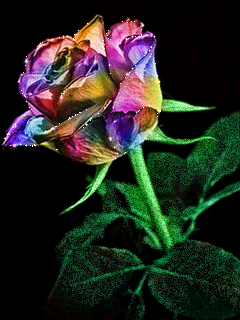


.
The Gypsy Scholar asks the question about sacred or profane love with the troubadours: Was it the saints or the lovers who kept the doors of paradise open in the Middle Ages? In other words, was the impulse of the Catholic mystics behind the troubadours (as the religious historians say), or was it the other way around—the troubadour impulse behind the Catholic mystics (as the poets say)? Of course, conventional wisdom goes with the mystics. However, the GS would go against this conventional wisdom and answer the question this way: Although it is partly true that some troubadours took the religious devotion directed to the heavenly Virgin Mary (in Mariology) and secularized it, redirecting it to their earthly Beloved, other troudabours (even before the popularity of the Marian cult) provided the devotional cult of the Virgin with erotic metaphors and troupes and, thus, provided in turn high Catholic mysticism with its erotic meatphors and troupes about divine love—language that described the soul's relationship to the Christ in erotic terms. (The great Catholic mystics, from the 13th to the 16th centuries, such a St. Francis, St. Catherine, and St. Teresa, were much enamored with courtly love literature in their youth. This use of erotic metaphors for the soul’s relationship to Christ persisted into the late 15th century with St. John of the Cross.)
All Christian theologians, from the Church fathers on, rank agape (divine love) over eros (erotic love), an inferior kind of love. However the GS dares to challenge this value system by inverting it—turning it upside down. Indeed, one renegade scholar of the Judeo-Christian tradition has recently aided the GS in re-visioning the entire relationship between sacred and profane love by re-contextualizing the biblical creation story into a cosmic love story: “Genesis is a conversation between two Lovers (‘the Eloheim’) resulting in the world coming into being.” Thus, the upshot of this is that Creation itself is the result of the divine “intercourse” between male and female deities (as in the Hindhu creation story of Siva and Shakti).
However, for over a century now scholars of so-called "courtly love" see the love of the troubadours as either exclusively chaste (never consummated) or exclusively sexual.
Therefore, when coming to terms about the nature of the troubadour’s conception of amor (fin’amor), we have “To think about the possibility of the profound and the profane existing all at once.” In other words, we have to think both spiritual love and erotic love, because the troubadours eroticized spiritual love and, conversely, spiritualized erotic love.
.


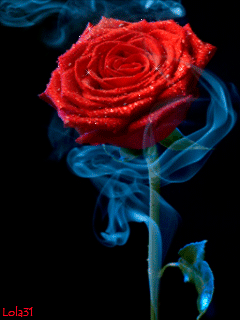






"Allegory of Sacred and Profane Love" (Reni)


"Heavenly Love and Earthly Love" (Scheffer)
.jpg)

_jp.jpg)

"Romeo and Juliet" (Dicksee)
.jpg)
"Romeo and Juliet" (Kronberg)
.jpg)
"Love" (Klimt)
.jpg)
"Lover's Tryst" (Bormeister)
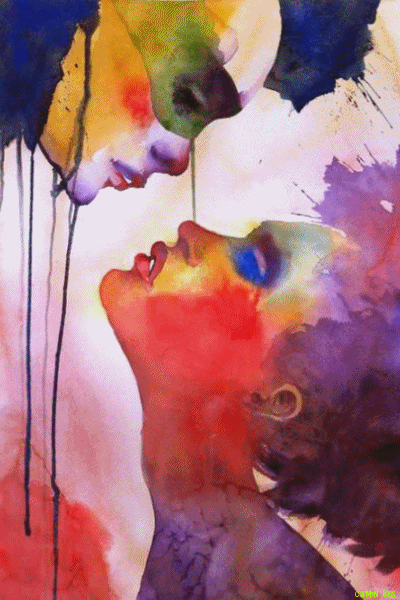
.jpg)
"Bylo to v máji" (Doubek)

"Paolo and Francesca"
.
“A kiss! The word is sweet. The kiss, I do not see why your lips do not dare one. It is divine secret which one mouth tells the other while neither needs to listen. It is a pilgrimage of the heart across the lips to the soul.”
―Edmond Rostand, Cyrano de Bergerac
"Soul meets soul on lover's lips."
― Percy Bysshe Shelley
"O baby I waited
So long for your kiss
For something to happen,
Oh something like this."
―Leonard Cohen, 'Light As The Breeze'
.
.jpg)
"The Kiss" (Grey)
.jpg)
"The Kiss" (Hayez)
.jpg)
"The Kiss" (Allanson)

"The Kiss"
.jpg)
.jpg)
"The Blessed Kiss" (Harrison)

"The Kiss of Life" (Wall)
.jpg)
"The Kiss" (Klimt)
.jpg)
"The Kiss"

"The Kiss"

The Lovers:















.jpg)


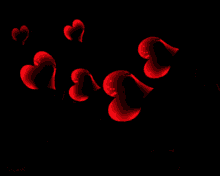

"The Music of Love"
"The Return to Eden" (Kenny)


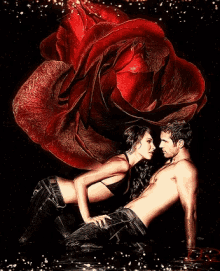


.jpg)
.

.jpg)
.
What is it men in women do require?
The lineaments of gratified desire.
What is it women do in men require?
The lineaments of gratified desire.
~Blake, The Question Answer'd
That pale religious letchery, seeking Virginity,
May find it in a harlot, and in coarse-clad honesty
The undefil'd tho' ravish'd in her cradle night and morn:
For every thing that lives is holy, life delights in life;
Because the soul of sweet delight can never be defil'd.
~Blake, America a Prophecy

.
In happy copulation; if in evening mild wearied with work;
Sit on a bank and draw the pleasures of this free born joy.
The moment of desire! the moment of desire! The virgin
That pines for man; shall awaken her womb to enormous joys
In the secret shadows of her chamber; the youth shut up from
The lustful joy, shall forget to generate. & create an amorous image
In the shadows of his curtains and in the folds of his silent pillow.
Are not these the places of religion? the rewards of continence?
The self enjoyings of self denial? Why dost thou seek religion?
Is it because acts are not lovely, that thou seekest solitude,
Where the horrible darkness is impressed with reflections of desire...
I cry, Love! Love! Love! happy happy Love! free as the mountain wind!
Can that be Love, that drinks another as a sponge drinks water?...
~Blake, Visions of the Daughters of Albion
.
.jpg)







The choice is between partial incorporation and total incorporation (integration). Participation (playing a part) or fusion. Total incorporation, or fusion, is combustion in fire…. The one is united with the all, in a consuming fire…. The word consummation refers both to the burning world and the sacred marriage…. Learn to love the fire. The alchemical fire of transformation …. Love is all fire …. The truth concealed from the priest and revealed to the warrior: that this world always was and is and shall be ever-living fire. Revealed to the lover too: every lover is a warrior; love is all fire. ~N.O. Brown, Love’s Body
The Andalusian troubadour had a vision in “the Night of Power” of his “Lady;” a vision of “the Soul's union with the Beloved, a communion with Absolute Being.” He tells how (in alchemical terms) he transmuted his desire into a flame, a “Fire which neither consumes itself nor consumes him, for its flame feeds on his nostalgia and his quest, which can no more be destroyed by fire than can the salamander.” (From Ibn Arabi, “The Interpreter of Ardent Desires”)

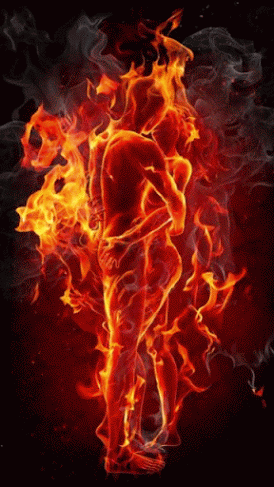
.
.
.
The Sacred Marriage (Hieros Gamos)
Then fire, make your body cold,
I'm going to give you mine to hold,
Saying this she climbed inside
To be his one, to be his only bride.
And deep into his fiery heart
He took the dust of Joan of Arc,
And high above the wedding guests
He hung the ashes of her wedding dress.
It was deep into his fiery heart
He took the dust of Joan of Arc,
And then she clearly understood
If he was fire, then she must be wood.
~Leonard Cohen, 'Joan of Arc'
.




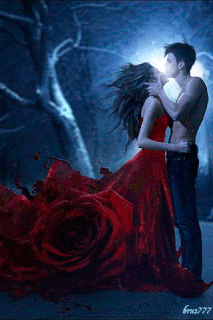


























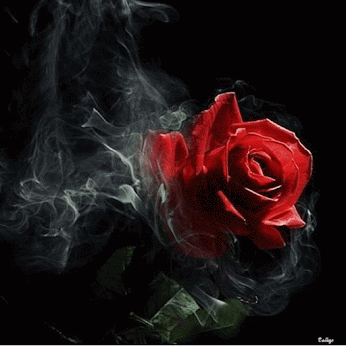


.
To witness two lovers is a spectacle for the gods. ~Goethe
As love is the most noble and divine passion of the soul, so it is that to
which we may justly attribute all the real satisfactions of life, and without
it, man is unfinished, and unhappy! ~Aphra Behn
.





"The Divine Feminine-Masculine Union"
.jpg)
"The Love of Souls" (Delville)


"The Luminous Union"
"The Sacred Geometry of Love"


"Eternal Love"
"Eternal Love" (Anima and Animus)

“It was here that he realized that the secret forces of the mystical life are very much related to the hidden forces of the private parts: 'The genitals,’ he writes, ’are the devil’s favorite playground, as well as the bower where one can achieve the greatest intimacy with the divine lover'.”
~Jeffrey J. Kripal (on Huxley’s Island)


“It is much better, the novel now suggests, to think of the erotic union of man and woman as holy, that is, to see the sacred in the sexual and the sexual in the sacred. Hence ‘the cosmic love-making of Shiva and the Goddess’.”
~Jeffrey J. Kripal (on Huxley’s Island)
.
“… annunciation of a full-bodied and more relational erotic mysticism. It is both a refusal to reduce the erotic to the simply sexual and a call to raise the sexual to the mystical through a personal encounter with another human being as other and lover.” ~Jeffrey J. Kripal
.


The Troubadours and the Great Question of Sacred or Profane Love in the Middle Ages
Was it the saints or the lovers who kept the doors of paradise open in the Middle Ages? In other words, was it the devotional impulse of the Catholic mystics that was behind the transcendent amor of the troubadours , or was it the other way around—was it the the troubadour impulse of transcendent amor behind the Catholic mystics (who was imitating who)? Well, unfortunately, both the orthodox priests and many secular authorities (i.e., medieval scholars and psychologists) hold that it was the classical mystics who kept the doors of paradise open during the Middle Ages. (Indeed, the psychologists, such as Lacan, couldn't possibly side with the troubadour lovers, since they judge their "joyful wisdom" of amor as essentially "narcissistic.")
However, there is a dissenting view from the heirs of the troubadours—the modern poets (Robert Bly) and storytellers (Martin Shaw).









